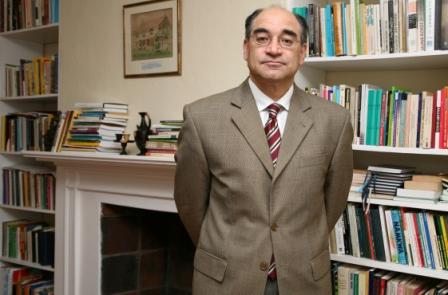
The third AISA Summer School started yesterday (Monday 17 January 2011) with Professor Lungisile Ntsebeza from the University of Cape Town unpacking issues around contemporary agrarian questions in the country. The week-long consortium will explore the aftermath of the global crisis, the scramble for land and resources and agrarian reform in the South.
Dean of Humanities, Prof Fred Hendricks said the limits and possibilities around agricultural and land policies were the main topics of discussion as there have been overwhelming failures on the part of the government. “In 1994, the government promised to distribute 30% of land to the people over five years, in fact only 1% have received land. We have in effect reached an impasse.” He said we need to find a way of “moving from land reform to land revolution”.
This was strongly re-emphasised in the first afternoon session, with Lulu Johnson, the director of the Parliamentary Committee on Agriculture, as the main speaker. The director of Grahamstown’s Masifunde Project, Fundile Magongosi, acted as the respondent in a passionate discussion on the poor state of agricultural and land affairs in South Africa. With delegates expecting news of some progress, they were surprised when Johnson said: “There has been no transformation in the agricultural sector whatsoever.” He cited a variety of reasons for this, including tribalism and racism and the fact that the majority of South African businesses on the JSE are owned by white people.
Thereafter Mercia Andrews, an activist who works closely with NGOs, spoke about AgriBEE and the proposed “undercover” green paper which has not been made public yet. The paper reveals that the Minister of Finance has provided projections for agricultural development but Andrews believes these figures are not viable in terms of large scale agrarian reform.
Andrews discussed how poverty-stricken agricultural workers are still being exploited as goods through their dependence on wage labour and, in terms of life in the township, there is often no space to plant vegetables or raise livestock. This exacerbates people’s dwindling relationship with the land even further. “There exists a tenuous relationship between culture, the environment and people,” she said.
Andrews says one of the biggest “deadly silences” which the government ignores in the paper is how land reform and rural development are to be financed and capacitated. How land distribution will be organised is also unclear, with the only reason provided that the price of land keeps escalating.
Additional factors that weren’t included in the paper, among others, include how workers go hungry in the non-harvesting months; no spokesperson or body represents women and the rural poor; the use of pesticides; genetically modified seed; lack of pasture; and the over-mechanisation of crops.
Picture: Dean of Humanities, Prof Fred Hendricks.
